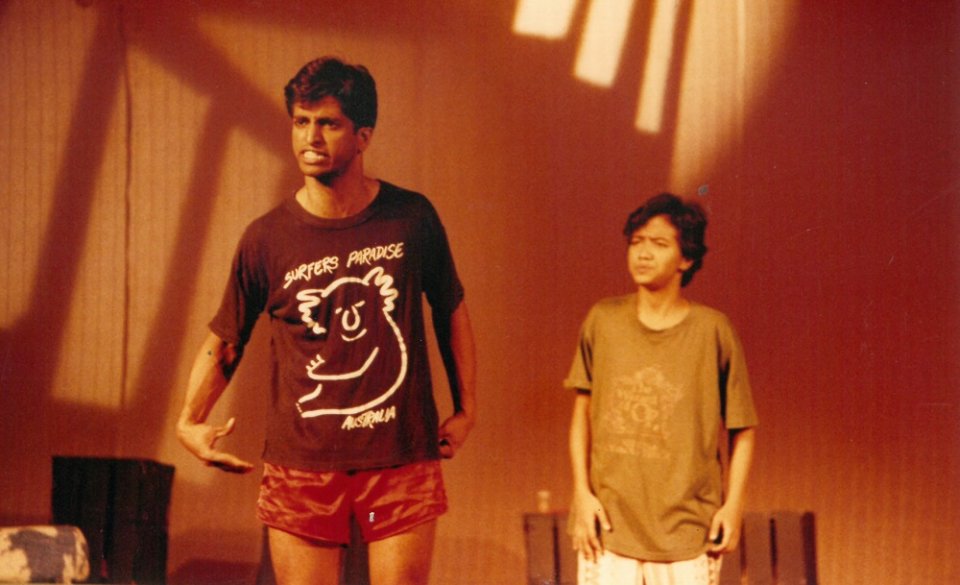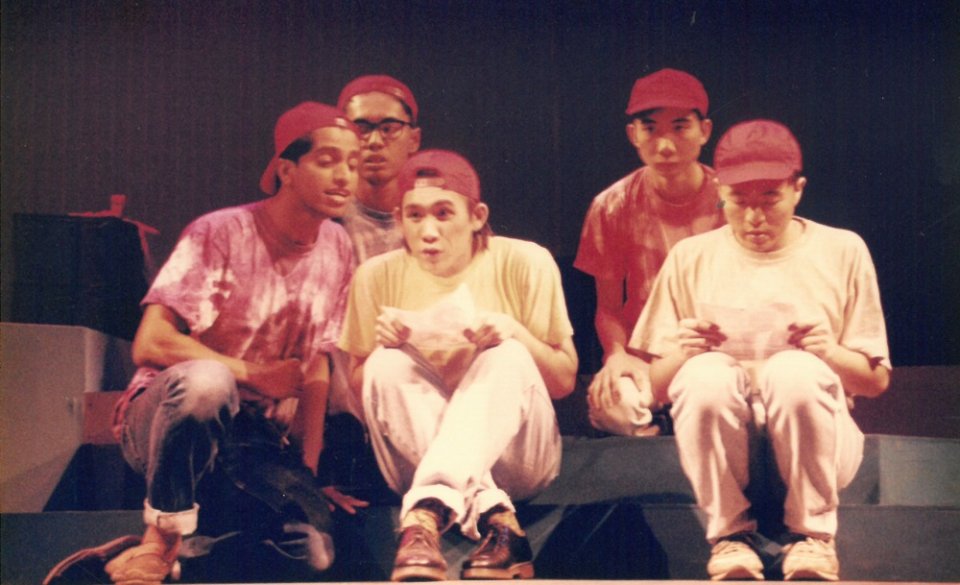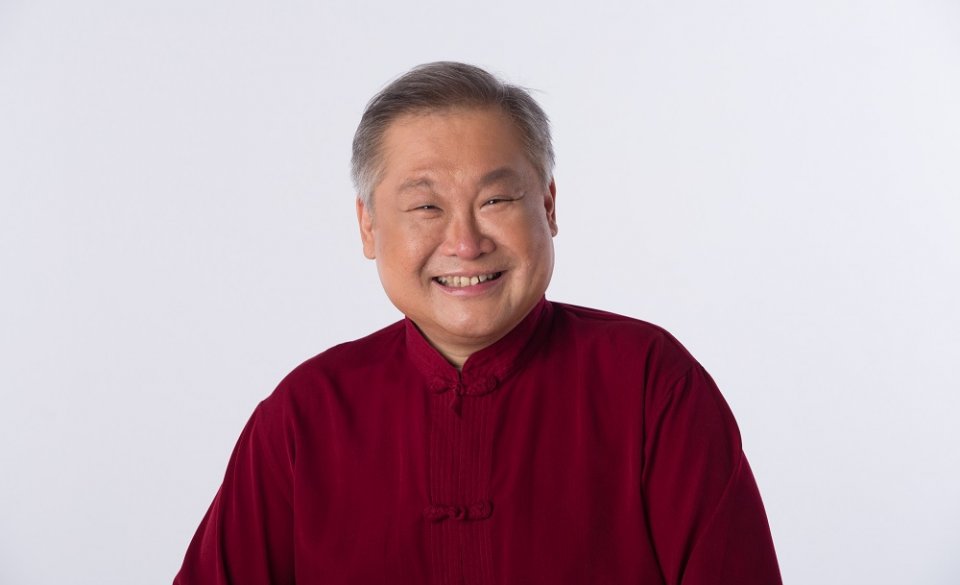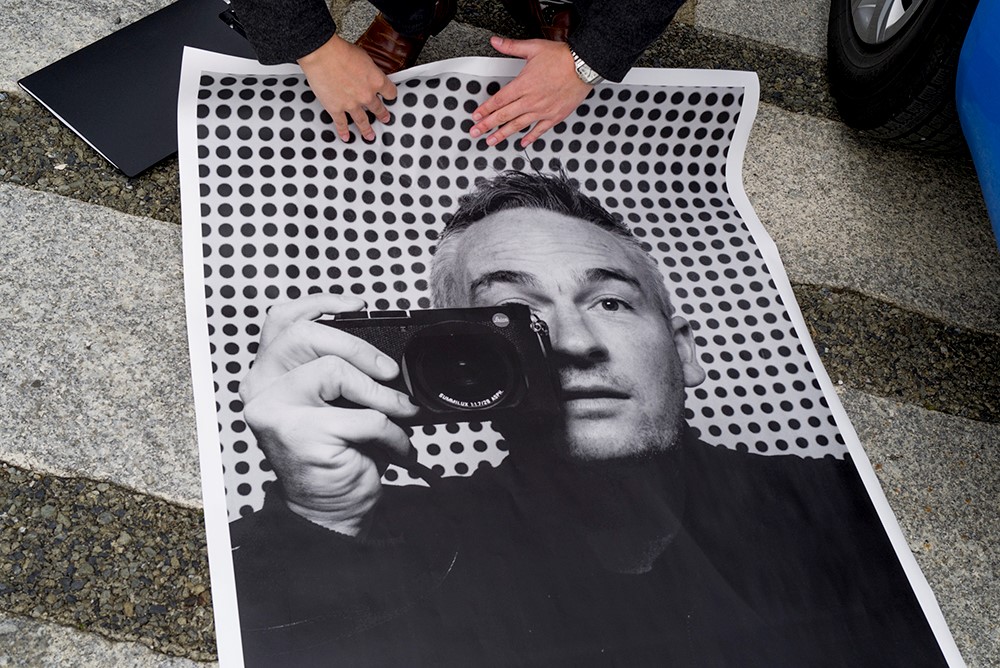The Necessary Stage’s (TNS) Off Centre is no stranger to restagings. After premiering in September 1993, the script penned by Cultural Medallion winner Haresh Sharma received four more revivals under TNS—in 1994 (once in Feb and then in Aug), 2007 and 2008; discounting the numerous adaptations by schools and other theatre companies.
Its story, which focuses on two everyday characters battling mental illnesses, was lauded in ‘93 for its insight and sensitivity on a taboo topic. The play made its mark as an icon of local theatre—and then again in 2006, when it became the first Singaporean play to enter the GCE ‘O’ and ‘N’ level literature syllabus.
But when it returns for the sixth time this month, it won’t be just another ho-hum restaging. From Feb 7-17, Off Centre will reunite its original protagonists and creative team 26 years on, for a timely retelling of an eternal story.
On why the company decided to restage its hit play, TNS founder and Artistic Director Alvin Tan said the initial motivation was to benefit new students. For the 2018 batch, Off Centre is one of the featured ‘O’ level texts once more.
“We feel the students need to watch it to have a better appreciation of the work, because a couple of points don’t come through as a literary text,” said the theatre director, who was awarded the Cultural Medallion in 2014, a year before his playwright partner. “And because some time has passed, we feel that it’s good to reconnect the play to a new generation of audiences.”
It seemed like kismet too, that the original protagonists, Sakinah Dollah and Abdulattif Abdullah (Lattif), who play Saloma and Vinod respectively, were able to make time to return to the stage. The married couple, who met on set of the ’93 production, are both full-time educators.
And Tan is thrilled to have them back, gushing that “for some time I couldn’t restage Off Centre because I couldn’t find a Vinod”. The cast is rounded out by fresher faces including Brendon Fernandez, Nicholas Bloodworth, and Ellison Tan, to bring new blood into the work.

Off Centre 1993 staging. Photo credit: The Necessary Stage
The latest restaging also comes at a timely juncture for local conversations around mental health. In January, AIA launched the first-ever insurance policy in Singapore to cover mental illnesses; later this month, Singapore will see its first film festival dedicated to mental health.
It remains unclear how effective these efforts will be. Tan, who recently stepped down from the board of mental health non-profit organisation Silver Ribbon, addressed the elephant in the room—restaging Off Centre in 2019 means the problem of mental health stigma still exists, two decades on.
“Being in Silver Ribbon, I was keeping (in) close touch with things the group was doing for mental wellness, and policies they were hoping to influence,” said Tan. “There’s a lot of infrastructure support that has developed since the play premiered, but the discrimination and stigma is no different. And that’s why it’s sadly relevant still.”
As part of their research for the play, both in 1993 and this year, Tan, Sharma and the cast interviewed people from halfway houses, the former Woodbridge Hospital, and aftercare centres. They were shocked to learn that many social workers advised recovered patients to lie on employment forms requesting them to disclose a history of mental health, “because if you disclose usually you don’t get the job, or you get half the pay because they regard you as not productive” —and still do today.
“The stigma is still the same, because this is a country that is pro-productivity. That doesn’t change,” added Tan.
“We will take care of our immediate family and friends; but if you see a person who is mentally ill and you don’t know them, as a society we don’t seem to have that capacity to care. Our compassion level is pretty low.”

Off Centre 1993 staging. Photo credit: The Necessary Stage
Still, it’s not all doom, gloom and zero progress. Tan shared that in their fieldwork this time round, the team met recovering patients at aftercare support group Club Heal who had very positive attitudes.
“They said ‘We come here because we’re determined to get better.’ That kind of positivity, I did not experience in the ‘93 fieldwork,” he enthused. Silver Ribbon is also presently appealing to corporates and companies to remove the mental health history disclaimer in employment forms—though whether people are receptive is a separate matter.
“That theme about accepting difference, even today, is worldwide. It’s a perennial theme of how we’re uncomfortable with difference,” said Tan.
As such, until society as a whole changes, Off Centre will remain a relevant play up for more restagings in the future, he acknowledged wryly. Nonetheless, he hopes the play can “kind of contribute to a person’s awareness”, in growing the conversation on an decades-old issue that’s finally receiving attention.
Could this then be your last chance to catch the iconic play? If it is, great; if not, well, at least that means more good theatre for all of us.
Our interview with Alvin Tan continues below.
Has the way the topic of mental health is handled, changed?
It’s not—the story of resisting medication is eternal. Also, it’s not only about mental illness, because the mental illness causes them to be ostracised—so that is eternal also, discrimination. It’s the same as (the question of) should gay people or the elderly be separated? Those themes are not tied to mental illness.
Even if you’re woke; we can use our political correctness to hide our prejudice. Just because you can be politically correct, doesn’t mean your prejudice is eradicated; it might be embedded and hidden behind all the political correctness.
How have you updated the play?
We have not; in fact, we’ve stayed with (using) the songs of the eighties. How I’ve updated it is because all of us have lived life; (the premiere) was 26 years ago. So I’m able to quite easily detail and layer the delivery. One example is that in the first premiere when Vinod was deteriorating, he had some scenes where he was very angst-filled—and I know today’s audience won’t be able to take it, if the angst plateaus throughout the scene. You just get switched off. So we took that out and replaced it with him being frenetic still, but not angst.
Is there anything in the dialogue that wouldn’t work now?
There will be people who do not know Woodbridge for example—but we retained it, because we feel that with just a little bit of asking around, or footnoting, you can find out. We face so many references from overseas—when we watch international films—then we go back and Wikipedia them; you know what I mean? We do that, so make some effort for your local works lah.
How effective are the arts in raising awareness or making change for issues like mental health?
I always say I am what I am today because of maybe 10 powerful books that I’ve read—10 novels, five plays, six films, two mentors; it’s a composite of things that come together that are responsible for what I’ve become today.
It’s too romantic to think that one play is going to change people, but for me, this play is different from our other plays—because it’s gone into the literature subject. I remember when we were studying lit, (the texts) entered my consciousness more profoundly. Because you question it, you reflect on it—depending on how good your lit teacher is, and how good a student you are, and how curious you are. So that helps me celebrate a little bit—that the transformative potential might be more than just a play that goes onstage for two weeks.
Have you considered working with actors with mental illnesses, for sake of representation?
I think it’s difficult for a play like this. We did it with the late Paddy Chew (the first Singaporean person with HIV/AIDS to publicly declare his illness) in Completely With/Out Character—he’s not a trained actor at all, he’s just stage-worthy and flamboyant.
We have projects like that, but for Off Centre it’s going to be difficult; even if it’s verbatim theatre. Verbatim theatre is okay because they own their own text. But with Off Centre, although the research has been done, the two protagonists carry a composite of interviewees that we’ve interviewed. That’s why it has to be acted by actors. People with actual mental illness can only represent themselves onstage, I think; it has to be their own stories.
How have you as a director changed from the first staging to now?
 TNS Artistic Director Alvin Tan
TNS Artistic Director Alvin Tan
Oh it’s very different; because that time we were creating—you’re receiving material, and generating material. This time, the script is done, the book is published twice, and we’ve staged it a few times. By this time we had the set design, the costume design, the songs; everything was set, so when the actors came in, it was just “you stand here, you stand here”.
We’ve never enjoyed the privilege of doing a tested work, because we were doing 100% new and original works. This time I’m very clear about the play—the motivations, what happens, the architecture of the play.
What is interesting is that this time I have to entertain other possibilities in my mind, and not be held ransom by the way that it used to work. And also be open to receiving input from the other actors who are slipping into the shoes of the characters for the first time—they’re bringing new possible interpretations to the work. Instead of just saying ‘no, it wasn’t done like that before’—you’re just shutting off the richness of the text that can be reinterpreted in a different way. So that aspect I can enjoy now, because the anxiety of material creation is not there.
Off Centre runs Feb 7-17 at Victoria Theatre. Tickets available here.





